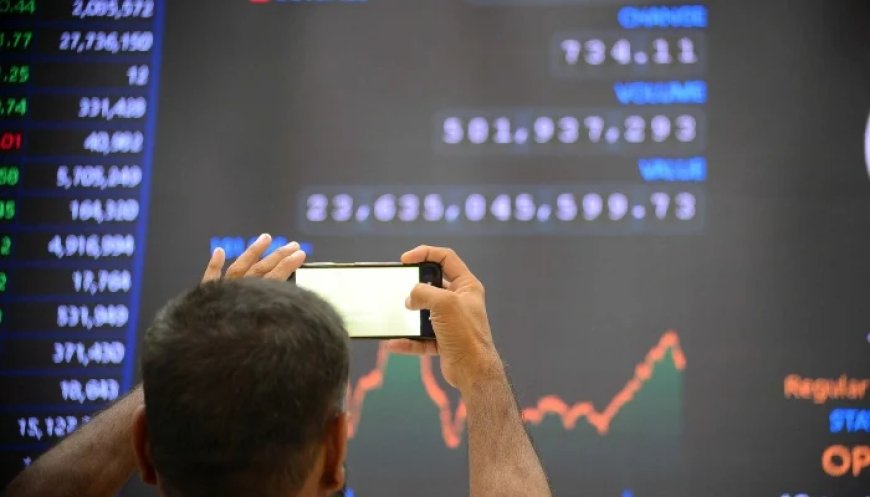KSE-100 Index tops 110,000 points as investor optimism surges

1. Benchmark index peaks at intraday high of 110,264.51, gaining 1,210.56 points, or 1.11%
The KSE-100 Index Surpasses 110,000 Points Amid Market Volatility and Economic Optimism
The capital market achieved a significant milestone this week as the KSE-100 Index surpassed the 110,000-point mark for the first time. This surge was driven by growing investor confidence in improving economic conditions and easing inflation.
The session began with a sharp decline, with the index shedding over 1,000 points due to concerns over potential new government tax measures on banks' profits. However, the market rebounded later in the day. The Pakistan Stock Exchange’s (PSX) benchmark index ultimately gained 1,210.56 points, or 1.11%, closing at an intraday high of 110,264.51 after hitting a low of 107,902.66.
Muhammad Saad Ali, Director of Research at Intermarket Securities Ltd., noted that “news about the government forming a committee to consider higher taxes on banks’ profits has dampened sentiment.” Many banking stocks fell over 4% as a result, pulling back some of the recent gains led by this sector.
The government’s proposed tax plan targets profits banks earn from investments in government securities. A seven-member committee, led by Deputy Prime Minister Ishaq Dar, has been tasked with reviewing the banking sector's advance-to-deposit ratio (ADR) and developing consensus-driven solutions. The committee is expected to present its recommendations by December 31 to help achieve revenue goals and promote private-sector lending.
Global factors also contributed to market volatility. Ahsan Mehanti, Managing Director and CEO of Arif Habib Commodities, cited “global equities selloffs, foreign outflows, tax shortfalls, and concerns over IMF targets” as drivers of bearish activity.
Despite these challenges, macroeconomic indicators offer long-term optimism. Inflation dropped to 4.9% in November, the lowest rate since April 2018. Additionally, Saudi Arabia extended a $3 billion deposit for another year, bolstering Pakistan’s foreign reserves. Trade agreements worth $560 million with Saudi Arabia and a surge in petroleum sales to a 25-month high signal increasing economic activity. The government’s successful auction of Ijarah Sukuk, raising Rs353 billion, also improved market liquidity.
Prime Minister Shehbaz Sharif celebrated these economic milestones, highlighting a drop in weekly inflation to 3.57%, the lowest in six years. He credited these improvements to the government’s stabilization efforts and emphasized rising remittances, increased investments, and strengthened diplomatic relations. PM Shehbaz reiterated his commitment to reducing economic hardships, promoting industrial growth, and boosting employment and foreign investment.
Finance Minister Muhammad Aurangzeb echoed this positive outlook, forecasting remittances to exceed $35 billion by FY 2024-25. Addressing the Overseas Chamber of Commerce and Industry (OICCI), he discussed ongoing reforms, including closing 900 fake petrol pumps, promoting local products, and addressing private-sector challenges. He also clarified that no discussions are ongoing with the IMF regarding a sales tax on petroleum products.
With the State Bank of Pakistan’s monetary policy meeting set for December 16, expectations of a potential rate cut and ongoing reforms are likely to shape the market's future direction. Analysts remain optimistic about the PSX’s long-term growth, supported by easing inflation and favorable economic indicators.


















































